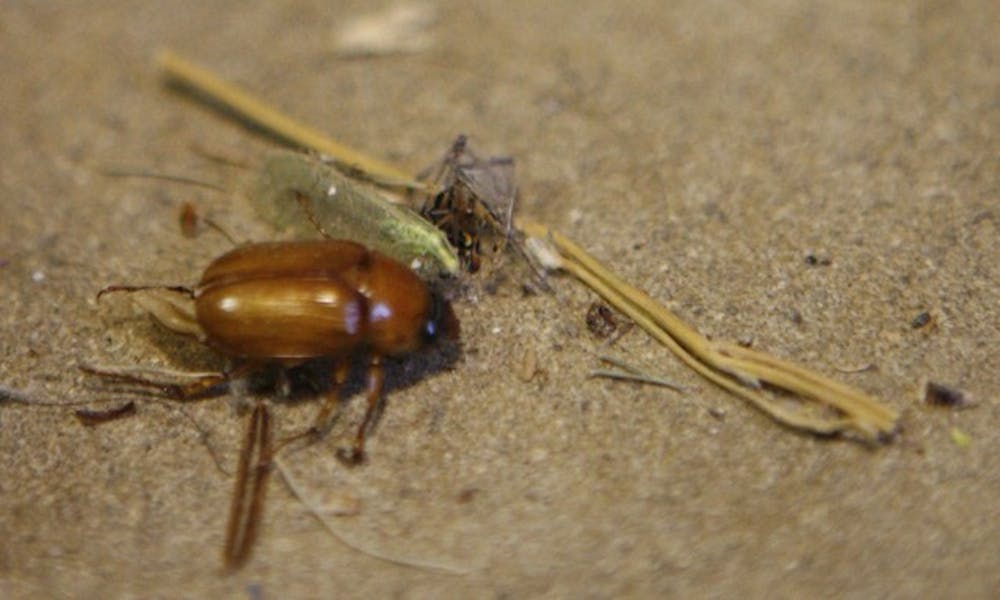Tired of walking around campus with those unsightly red bumps on your legs and scratching uncontrollably during class? The Chronicle’s Jose Lamazares spoke to experts to help you avoid North Carolina’s hungriest insects.
The last thing anyone needs is to spend the school year covered in bug bites. Some information about the insects on campus and a few preventive tips can help you stay bite-free as the summer comes to an end.
The most common threats around campus are mosquitoes and chiggers. Mosquitoes breed anywhere there is standing water such as gutters and puddles.
“Mosquitoes need a blood meal in order to lay eggs,” said Jim Clark, H.L. Blomquist professor of environment. Certain species only need a few days for these eggs to hatch, so after a rainy day, mosquitoes might be found almost anywhere on campus, Clark said.
Chiggers are a type of parasite found mostly on rabbits and deer, but have been known to feed on humans as well. Their bite can produce swelling and irritation around the affected area.
So who is most likely to be bitten?
“There is evidence that suggests that women may be more susceptible than men,” said Fred Nijhout, professor of biology.
Mosquitoes are also attracted to body odor, but those who are not malodorous are still susceptible to bites. Natural body odors such as carbon dioxide and lactic acid attract insects as well, Nijhout said. Being outside at night, or in very humid areas increases the risk of being bitten.
Chiggers are not as common around campus as mosquitoes, but they attach themselves to the tips of blades of grass to find a host, so grassy areas such as the golf course at the Washington Duke Inn and Golf Club have higher concentrations of these insects, Nijhout said.
One way to prevent bug bites is to use insect repellents that are commonly found in convenience stores. Nijhout and Clark specifically recommend bug sprays that contain the chemical DEET.
A 2002 study by Duke University Medical Center researchers, however, suggests that DEET may negatively impact the brain. Experiments on rats showed that the rodents experienced brain cell death and behavioral changes after prolonged exposure to the insecticide.
But the researchers’ results are still being debated and may require further study to clarify the possible impact on humans, so the repellent should be used with care.
If bitten, avoid scratching the area, as that may open the sore and lead to an infection, Nijhout said. Medications such as Cortizone may be applied, but little else can be done otherwise. Thankfully, the insects on campus are not likely to carry diseases, so a bite usually amounts to nothing more than a few miserable days, Nijhout added.
Get The Chronicle straight to your inbox
Signup for our weekly newsletter. Cancel at any time.

